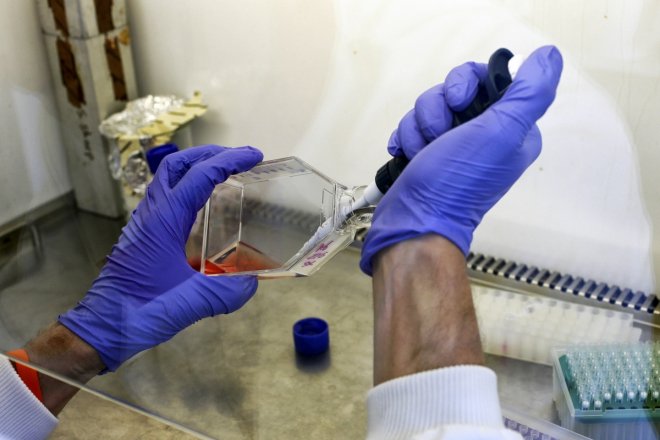
It is found out that obesity is a leading cause for 16 kinds of cancer, according to a research paper by Cornelia M. Ulrich, Senior Director of Population Sciences at the Huntsman Cancer Institute at the University of Utah in Salt Lake City.
The research findings show how some types of fat-secreted substances lead to the growth of cancer. Three types of fat: white, brown and beige acts differently and are present in different amounts depending on where the fat is stored. The white adipose tissue which is associated with inflammation prevails more in the breast cancer patients.
The study analysed the effect of fat on the breast, prostate, colorectal (bowel or intestinal), esophageal (food pipe), endometrial (uterus) and ear-nose-throat cancers, based on the proximity of fat tissue related organs. Scientists said, "In colorectal cancer, adipose tissue is typically located adjacent to tumours, whereas, in breast cancer, adipose tissue is part of the direct tumour microenvironment."
"Obesity is dramatically increasing worldwide, and is now recognized as one of the major risk factors for cancer, with 16 different types of cancer linked to obesity," says Cornelia M. Ulrich, chief scientist at the Huntsman Cancer Institute at the University of Utah in Salt Lake City, USA. He further adds "We urgently need to identify the specific mechanisms that link obesity to cancer."
Earlier researchers have found that the obesity has increased the risks of inflammation which is associated with cancer. Cancer cell metabolism and the immune system are also believed to be affected by obesity which can cause growth and spread of tumours. Adipose stromal cells which connect the fat tissues have the power to penetrate the wounds in the cancerous tissues and promote the growth of tumours. These cells were found in larger numbers in obese patients with prostate cancer and breast cancer.
The researchers extensively found that carcinogenesis, the process in which normal cells get converted to cancer cells is found to have "crosstalks" with fat molecules during its conversion. Similar signals are shared between the cells and fat molecules during the carcinogenesis process. These signals are shared through more than one signalling pathways. The researchers are going to interrupt this signal pathway to identify new cancer prevention strategies,
Ulrich further also adds, "We are just beginning to unravel the ways crosstalk occurs and the substances involved," He added, "The more, we understand this process, the better we can identify targets and strategies for decreasing the burden of obesity- related cancer."
It is also found that metabolomics, the developing field of study which analyzes small molecules called metabolites to cite the exchange of substances between fat cells and tumours was been used for this study.
Ulrich also explains that even slender people may have excess fat surrounding internal organs because fat can exist both under the skin and deep inside the body. Healthy diets and exercise that helps in building lean muscles can reduce accumulation of fat and hence reduce the risk of cancer.









